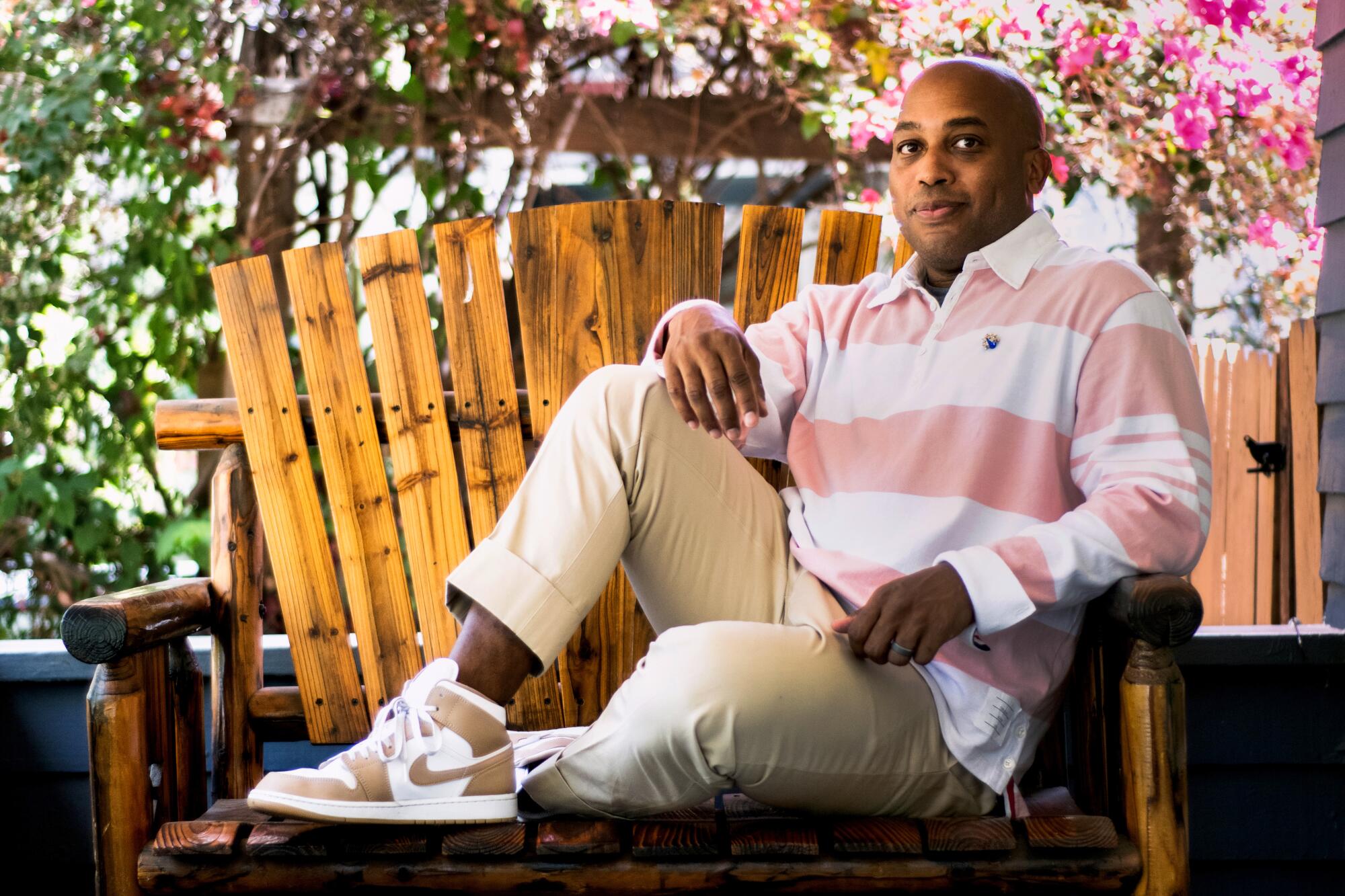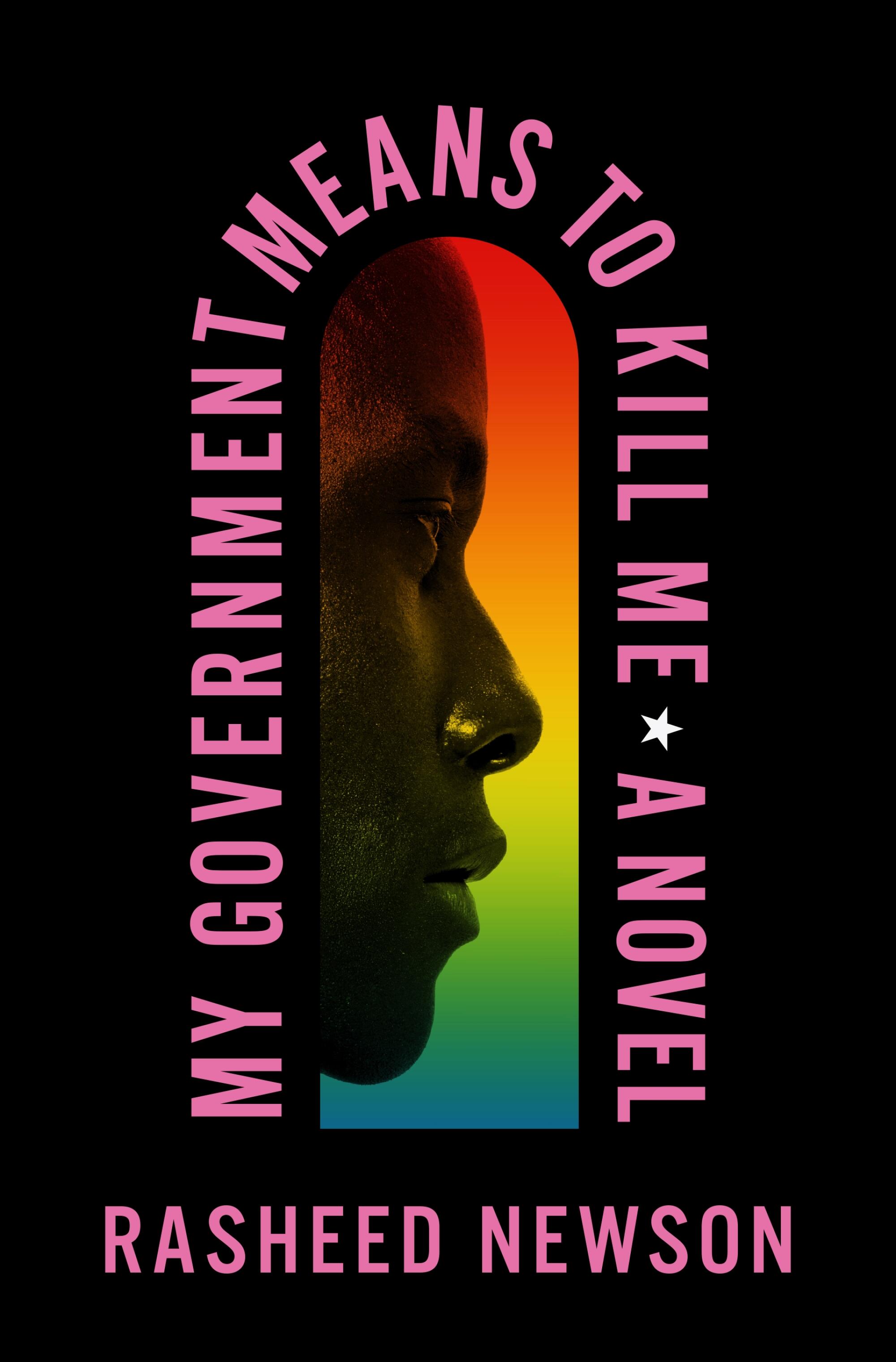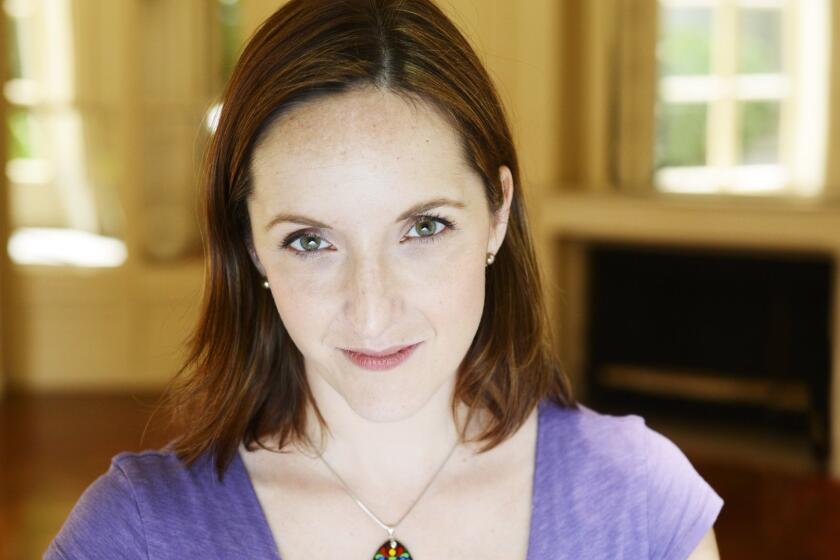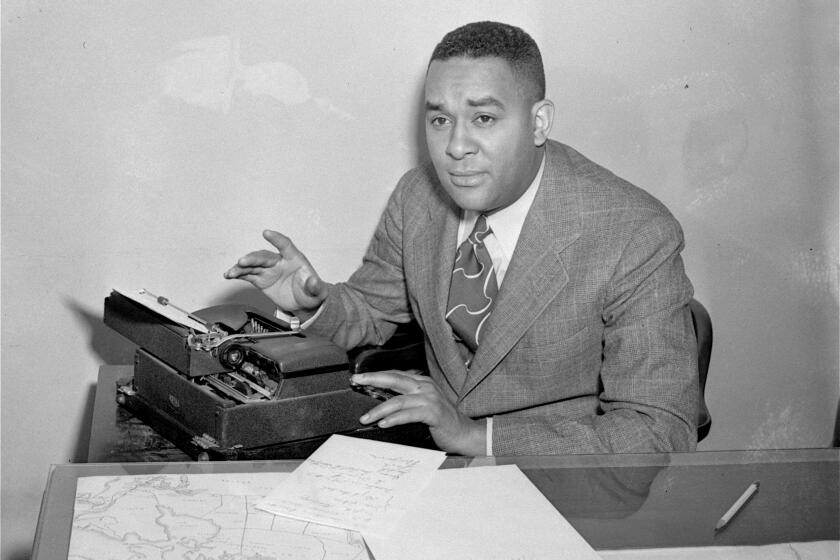
- Share via
On the Shelf
My Government Means to Kill Me
By Rasheed Newson
Flatiron: 288 pages, $28
If you buy books linked on our site, The Times may earn a commission from Bookshop.org, whose fees support independent bookstores.
The novelist and TV writer Rasheed Newson is 43, which makes him too young to have participated in the heyday of AIDS activism and the civil rights movement. “I’m Black and I’m gay and so I’ve always wondered what role I would’ve played,” he says from the Pasadena home he shares with his husband and their two children. “I wonder where I would’ve fallen in the world of protesting. Would I have been someone who donated money? Would I have been someone who worked at a hospice? Would I have been someone out in the streets with ACT UP?”
He’ll never know. But he has some fun speculating in his debut novel, “My Government Means to Kill Me.” It’s the story of Trey, an Indiana native (like Newson) who leaves his wealthy family behind and moves to New York in 1985. A Black gay man on the cusp of turning 20, Trey indulges in bathhouse sex and sets about to have himself a good time, tomorrow be damned. Then he stumbles into activism. He organizes a rent strike against a slumlord named Fred Trump (father of a future president). He’s on the ground floor of ACT UP, the grassroots political group created by firebrand Larry Kramer to end the AIDS epidemic. He works at a pop-up AIDS hospice, feeding and caring for men during their final days.
He learns there’s more to life than his immediate gratification.
“This story has been bubbling in my head for years,” Newson says. “Maybe my entire life.”
David Santos Donaldson’s many-layered debut, ‘Greenland,’ features a novelist rushing to complete a book about E.M. Forster’s lover, Mohammed El Adl.
As for why it didn’t become a pilot instead, writing his first novel gave Newson the opportunity to tell a personal story. “Television is a collaborative art,” he says. “I’ve never written a script for television where I got to be the one and only and final word on what was going to happen. And that’s what you get when you write a novel.”
Newson, the co-showrunner of Peacock’s “Bel-Air,” has a little Trey in him. As a student at Georgetown University, he volunteered for Grandma’s House, a residential care home for children with HIV/AIDS. After a Friday night of making dinner and putting kids to bed, “I would ride my bike to Dupont Circle, affectionately known as the Fruit Loop. And I would go out to Club Chaos, or Badlands, or the Fireplace, and dance, drink and sometimes have unprotected sex. I had just come from a place where HIV and AIDS were in front of me and yet, because I was 18, 19, 20 years old, I still needed some release. I still wanted to feel alive. I wanted to depict that.”

Trey’s haunt of choice is Mt. Morris Baths, a Harlem bathhouse that welcomed sex-seeking gay men of any color or creed before it closed in 2003. It’s where he goes for casual, usually unprotected sex. It’s also where he meets Bayard Rustin, the openly gay civil rights leader who was cast out from the Rev. Martin Luther King Jr.’s inner circle because of his homosexuality. Rustin, who was not known to frequent Mt. Morris, becomes a mentor of sorts for Trey, advising him on the discipline required to make a difference in the world.
Newson peoples his debut with all sorts of real-life characters. In addition to Trump and Rustin, there is the late conservative (and anti-gay-rights) leader William F. Buckley Jr., who makes a cameo here as a closet case. (Buckley was not known to be gay.) And there’s Kramer, known for his fiery temper. That one gave Newson pause. “You put Larry Kramer in a book and he doesn’t like it, you’re sure going to hear about it,” Newson says. Kramer died in 2020, and Newson followed his instincts to give him a key role in Trey’s development as an activist.
“No one wants to die before the end of the story,” says a character in Rebecca Makkai’s new novel, “The Great Believers.”
While some writers might blanch at this kind of cameo infusion, to Newson it was essential — a way to make the novel feel direct rather than coy. “It felt like it would be inauthentic not to have them meet,” Newson says. “And I certainly didn’t want to do a stand-in because you get the worst of all worlds there. You’re not owning who it is, but everybody’s assuming that you’re writing about Larry Kramer anyway, and you just didn’t have the nerve to put his name in it. So I figured, why not?”
Another thing Newson didn’t want to be coy about: the sex. It’s rendered in unapologetic detail that leaves little to the imagination. This is very much by design. Aside from reflecting the preponderance of unprotected sex in the early days of AIDS (or at least the early days of awareness), Newson was also compelled by a drive for honesty.
“A lot of queer stories are told in a way that are designed to make heterosexuals comfortable,” Newson says. “It’s like, ‘We’re going to tell you about queer life, but don’t worry; we won’t get into any of that nasty sex that makes you squirm.’ I didn’t want to write that kind of book. I want heterosexuals to love the book too, but I’m not changing the depiction of this world to meet their sensibilities. If they want to read this book, they’re going to step into our world and they’re going to see it as it is.” One thinks of Richard Wright, who, with his uncompromising “Native Son,” determined to write a novel that bankers’ daughters couldn’t weep over.
‘The Man Who Lived Underground,’ newly expanded from a story into a novel by the Library of America, may revise the seminal Black author’s reputation.
“My Government Means to Kill Me” returns the reader to the frightening days when AIDS was called a gay cancer, stoking the fires of homophobia. But it also recaptures the determination of those who decided they wouldn’t lie down for exorbitantly priced drugs and societal ignorance. This is where Trey finds his purpose. Thanks to Newson, it’s also where he finds his voice.
Vognar is a freelance writer based in Houston.
More to Read
Sign up for our Book Club newsletter
Get the latest news, events and more from the Los Angeles Times Book Club, and help us get L.A. reading and talking.
You may occasionally receive promotional content from the Los Angeles Times.












